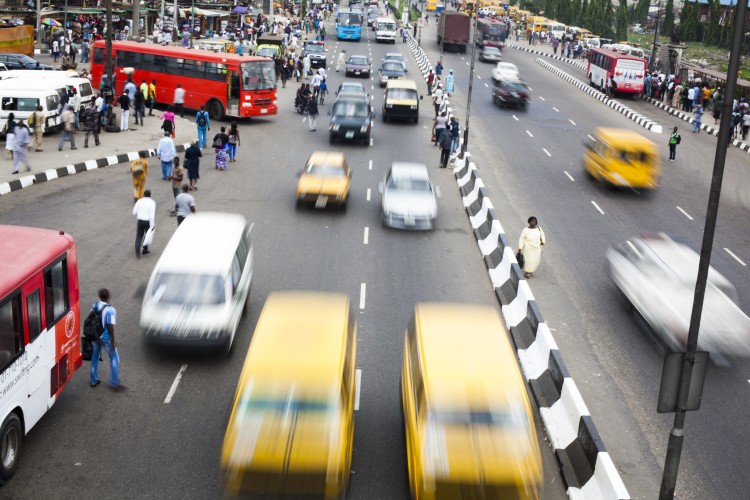Do you know that virtually all the popular Places in Lagos have an history behind their names?
You hear of names like Agidingbi, Ikeja, Epetedo, Magodo and you wonder if they have historical meanings. Well they do...
Ebute Metta
During the colonial era, Ebute-Metta was the hub for trade and commerce.

During the colonial era, Ebute-Metta was a hub for trade and commerce. It was one of the earliest harbour docks where British ships berthed at. The name is a fusion of the words “Ebute” which means the seaside in Yoruba, and “Metta” which means three. Most of the houses in this ancient part of Lagos were built during the colonial era.
Victoria Island
 Before it became an area for the affluent, it was just an Island surrounded by water. Popularly called V.I., it is named after Queen Victoria of England who was Queen from 1837-1901. The area was a major hub for commerce and British ships berthed there often during the colonial era.
Before it became an area for the affluent, it was just an Island surrounded by water. Popularly called V.I., it is named after Queen Victoria of England who was Queen from 1837-1901. The area was a major hub for commerce and British ships berthed there often during the colonial era.Broad Street

Broad street got its name from its broadness. It used to be one of the longest and widest streets in Lagos. Today, you will find elegant building architecture and skyscrapers on this street Read
Oshodi
Oshodi was named after Balogun Landuji Oshodi Tapa, a Nupe boy who was adopted and raised by Oba Eshinlokun of Lagos.
 Chief Balogun Landuji Oshodi Tapa was an outstanding warrior and a statesman. During the reign of King Eshilokun, he immigrated to
Chief Balogun Landuji Oshodi Tapa was an outstanding warrior and a statesman. During the reign of King Eshilokun, he immigrated to
Some years later, one of the Portuguese merchants, a friend of King Eshilokun, asked the king to let two of his children accompany him to Portugal and he promised to bring them back. The King was very wary of this offer and he thought instead of risking the lives of any of his own children, he would offer two people loyal to him. Hence he chose Oshodi and Dada Antonio to go with the Portuguese merchant.
While the King thought he was protecting the interests of his own children, he was in fact denying them an opportunity that would have benefited them more in the future.
Oshodi and Dada Antonio went with the Portuguese merchant to America and they were later returned to the King after many years.
Apongbon
 Olowogbowo is an area in the west of Lagos Island in Lagos, Nigeria, also known as Apongbon. The area is in the central business district.[1] The community was founded after 1851, when freed Yoruba captives and their descendants who had been set ashore in Sierra Leone returned in successive waves to Lagos, and were granted land to settle in the Olowogbowo and Breadfruit areas of the island.[2]
Olowogbowo is an area in the west of Lagos Island in Lagos, Nigeria, also known as Apongbon. The area is in the central business district.[1] The community was founded after 1851, when freed Yoruba captives and their descendants who had been set ashore in Sierra Leone returned in successive waves to Lagos, and were granted land to settle in the Olowogbowo and Breadfruit areas of the island.[2]
The name Apongbon is a garbled version of the Yoruba "A l'agbon pipon" (man with the red beard), a name given to William McCoskry, acting governor of the newly established Colony of Lagos in 1861
Ikeja

Historically, Ikeja, the capital of Lagos consists of 78 communities. The earliest settlers in the area and its environs were Aworis who migrated from Ota-an Awori town in Ogun state which is about 24km north of Ikeja township. The name Ikeja is actually an abbreviation for “Ikorodu And Epe Joint Administration”. The colonial masters coined the name for ease of administration.
Ojota
 In the 18th century, the Ojota area was military settlement where soldiers practiced their shooting or perfected their shooting skills. There were several gun firing spots which became known as “Oju Ota” which means “Bullet spots” in Yoruba. Later, the name metamorphosed into Ojota as it is fondly called now.
In the 18th century, the Ojota area was military settlement where soldiers practiced their shooting or perfected their shooting skills. There were several gun firing spots which became known as “Oju Ota” which means “Bullet spots” in Yoruba. Later, the name metamorphosed into Ojota as it is fondly called now.
Magodo
Before it became a posh area and home to the affluent, Magodo was sacred land. The residents had a lot of taboos. One of such was to avoid using mortars and pestles, “Ma gun odo” which means “Don’t pound it”. It later became ‘Magodo’.
Comments
Post a Comment